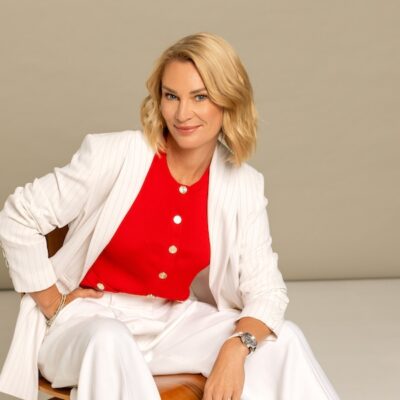New Zealand-based brand Cadenshae is one of a number of companies trying to shift societal views towards women, pregnancy and work.
In 2013 six times US 800m champion Alysia Montaño left her sponsor Nike after she discovered her pay would cease if she fell pregnant. Months later, the Olympian was picked up by Asics and promised maternity coverage for the future. But, following the birth of her daughter in 2014, and after a change of management, Montaño’s contract was cut by Asics due to her performances whilst pregnant.
Montaño’s treatment became the catalyst for a movement to find companies who support female professional athletes in pregnancy, and beyond. Fellow mums and star runners, Allyson Felix (the most decorated female Olympian of all time), and long-distance champion, Kara Goucher joined Montaño’s plight, with all three women speaking out and standing up for maternal protection in their contracts.
“So many of these major brand sponsorships are highly unfair and downright discriminatory. This discrimination is hidden within fancy verbiage and legal jargon,” says Montaño.
“Why, just because I am a woman and an athlete should I be penalised for acting on a basic human right? Men don’t lose out on money when they become fathers.”
Since the initial outcry, Montaño, aka ‘that pregnant runner,’ has gained a four-year sponsorship deal with Cadenshae, a a Kiwi activewear brand specialising in clothing for pregnant and nursing mums. The New Zealand-based company is dedicated to backing Montaño in ways that support the whole female athlete.
Cadenshae signed Montaño in October last year, a few weeks after she announced her third pregnancy. The partnership focuses more on allowing Montaño to pursue her newfound role as a women’s maternity rights activist and her most important role – a mum – rather than demanding podium placings.
At around the same time, Felix announced her break-up with Nike for similar reasons to Montaño. The 33-year-old mother moved to Athleta, another brand priding itself on backing pregnancy in sport.
Nike, Asics and other big-name brands have made some changes to female contracts since the uproar, but there’s still a lot of work to be done with traditional sponsorships.
These highly influential athletes have left the big guns in favour of ‘pro-women’ sponsors, and there’s an increasing number of companies who’re joining the movement.
Cadenshae founder Nikki Clarke says although things have improved, more needs to change for all working women, not just professional athletes.
“Companies like Cadenshae, Athleta, Altra, and Nuun – we’re trying to shift societal views towards women, pregnancy and work, and we do this by sponsoring the big names to get the word out.”
“We do it because we want to, but also because we need to; to pave the way for all expecting and new mums.”
“Women are still so undervalued in 2020 and companies must re-evaluate their maternity coverage policies and compensate more appropriately where needed,” says Clarke.






